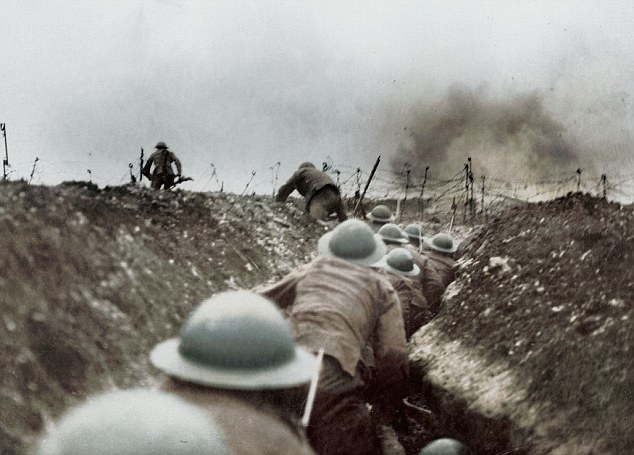
The BBC is set to release a footage never before shown. The footage contained previous interviews with veterans of the First World War. The series of distressing interviews were deemed too “personal” to be shown for public viewing when they were originally recorded in the 1960s.
The footage of the World War I veterans sharing their real-life and first-hand encounters of the war is set to be shown in the documentary, “I Was There: The Great War Interviews”, on BBC Two this month.
The film was originally recorded in the early 1960s for one of the monumental documentary series of BBC, “The Great War”. The interviewees numbered around 280 who were eyewitnesses of the conflict.
The series then, however, placed greater stress on the battle and the politics that played during the war, according to many modern documentary makers. The personal tales and reminiscences were lost in the film.
The modern audiences, compared to the audiences in the 1960s, would appeal more to the emotional angle of the story, the makers said.
Using the recorded interviews, a new film is set to be made with the element of the human cost of the First World War from the perspective of those who survived it.
In one account, an eyewitness shares the moment the men left the trenches after the war.
Richard Tobin, who served with the Royal Naval Division, said, “As soon as you got over the top, fear has left you and it is terror.
“You don’t look, you see. You don’t hear, you listen. Your nose is filled with fumes and death.
“You taste the top of your mouth… You’re hunted back to the jungle. The veneer of civilisation has dropped away.”
Another testimony described the horrific experience during one of the retreat they made in a battle ground after a day’s fighting.
Edward W. Glendinning, from Sherwood Foresters, said, “It was just like a flock of sheep lying in the middle of a field.
“Quite a number of the men were still alive and they were crying out and begging for water.
“They plucked at our legs as we went by. One hefty chap did grab me round both legs and held me.”
John Palmer, a gunner who was awarded the Distinguished Conduct Medal, also shared how he intentionally tried to throw himself in front of a horse-drawn ammunition wagon in order to get an injury and be ordered out of the war.
Palmer said, “I began to ease my way out and eventually the first wagon reached me. And do you know, I never even had the guts to do that. I found myself wishing to do it. But hadn’t got the guts to do it.”
These are a few of the interviews which will be shown to the public after 50 years of being contained in the archives. Some of those who were in the footage have already passed away. BBC executives felt that modern audiences would appreciate the interviews which revealed the feelings and emotions of the soldiers.
Mike Connolly, the executive producer, said, “The original program was very Reithian, concerning the battles and the politics.
“The worth of the personal experiences was not respected in the same way. The story of the men then were supplementary. Here they are the main focus.”
The footage contains about 70 hours of interviews. Of the 70, 55 hours survived, after having been kept for a long time at the Imperial War Museum in London.
Julia Cave, the researcher who conducted the original interviews at Ealing Studios, said, “It has always been said that they [veterans] didn’t talk about the war, but there were a lot who did want to do so.”
